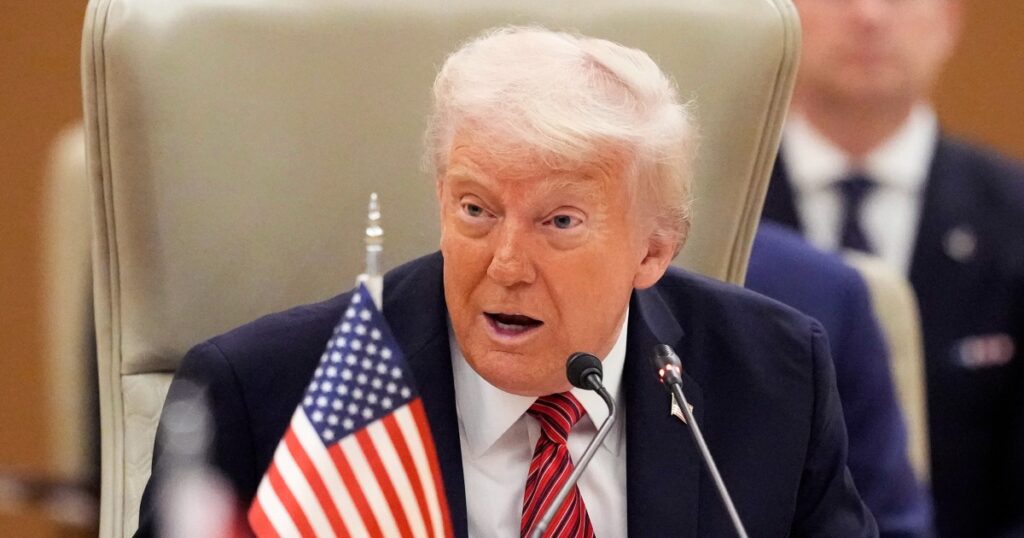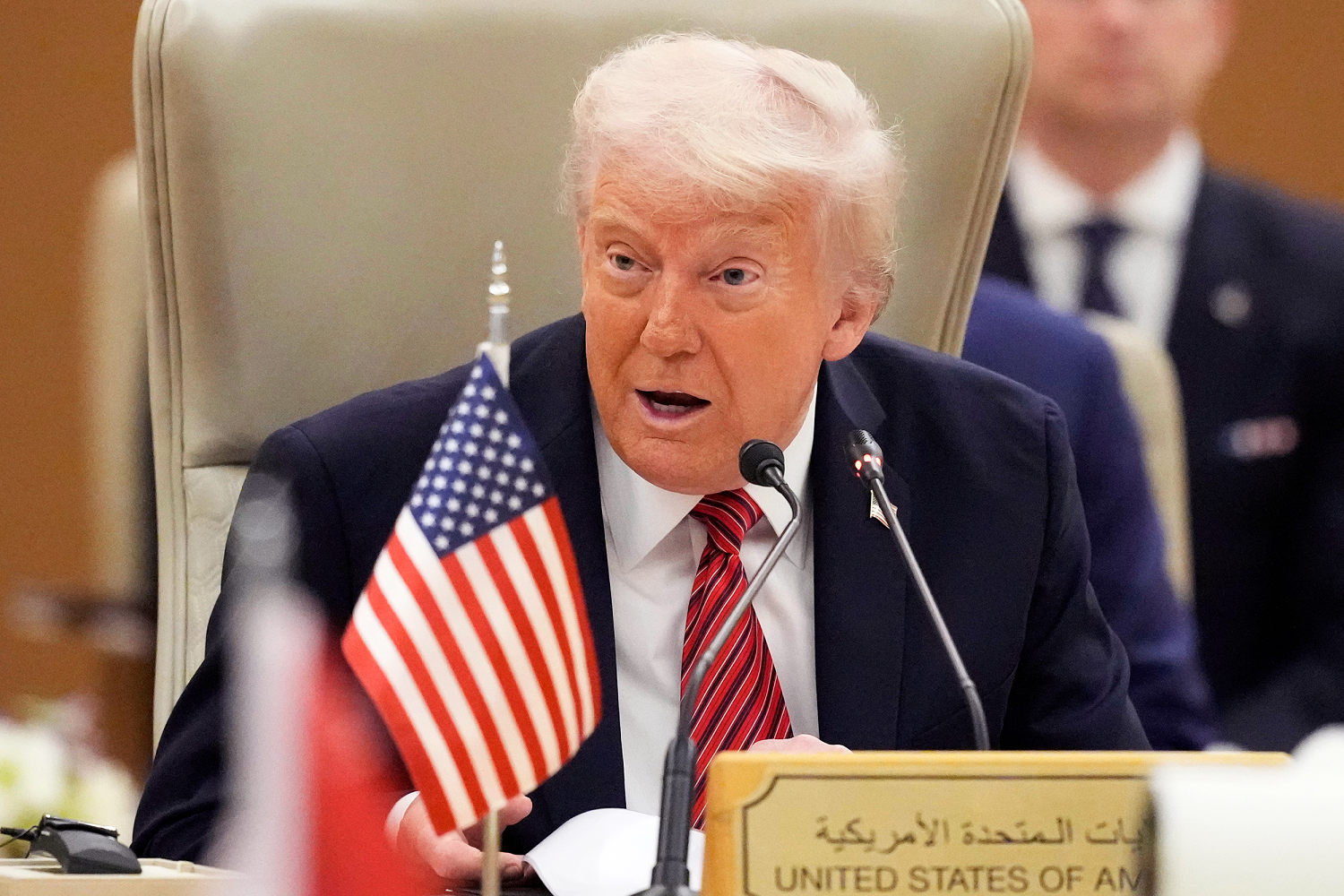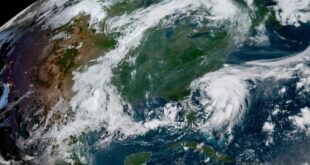

ABU DHABI, United Arab Emirates — President Donald Trump is returning to Washington on Friday after a diplomatic tour of the Middle East, where he pitched American business and secured investment pledges but failed to reach long-promised peace deals in Gaza and Ukraine.
Marked by high-level talks and lavish displays of regional hospitality, the trip showcased Trump’s self-styled role as a dealmaker and peacemaker. Still, his loftiest targets — resolving the conflicts in Gaza and Ukraine — remain elusive.
In Abu Dhabi, Trump capped his weeklong tour with a visit to Qasr Al Watan, the emirate’s presidential palace, where he toured exhibits showcasing investments in energy, health care and aviation. Accompanied by Commerce Secretary Howard Lutnick and Treasury Secretary Scott Bessent, the president met with business leaders and took shots at his predecessor.
“I’m just thinking, we have a president of the United States doing the selling,” Trump said, taking a swipe at former President Joe Biden. “You think Biden would be doing this? I don’t think so.” A large screen at the event repurposed his campaign slogan to proclaim “Making Energy Great Again,” a nod to the economic focus of the trip.
Throughout the week, Trump announced major investments by Middle Eastern nations in American businesses, including a $600 billion investment deal from Saudi Arabia and an agreement with Qatar Airways to buy hundreds of planes from Boeing and GE Aerospace.
The visit came amid controversy over Trump’s eagerness to accept a planned gift from the Qatari government: a $400 million luxury plane which he hopes to use as Air Force One. The offer has drawn backlash from Democrats and some Republicans back home over potential ethical, security and financial challenges.
Trump repeatedly dismissed concerns about the plane, saying he “thought it was a great gesture.” He also brushed off accusations that the trip, which came as his namesake company expands into the Middle East, created a potential conflict of interest.
Yet, even as he celebrated his economic victories, the president faced the reality upon departure of the ongoing wars in Gaza and Ukraine, conflicts he has vowed to resolve.
The president has made ending some of the world’s thorniest conflicts a top priority of his administration, vowing to stop the bloodshed and bring about a lasting peace. And in a show of strong commitment, he has dispatched top aides to the cause, with special envoy Steve Witkoff hopscotching the globe in pursuit of the president’s goal. Before departing Washington, Trump announced the release of Edan Alexander, an American held by Hamas, with Qatar playing a central role in the negotiations.
However, the president acknowledged that significant challenges remain. “We’re looking at Gaza,” Trump told reporters aboard Air Force One as he left Abu Dhabi. “And we’re going to get that taken care of. A lot of people are starving.”
As Trump concluded his trip Friday, Israeli airstrikes had killed more than 100 people in the last 24 hours, according to local health authorities.
On Friday, asked about future opportunities for face-to-face diplomacy between himself and Russian President Vladimir Putin, Trump responded: “We have to meet. He and I will meet. I think we’ll solve it, or maybe not.”
Earlier, Trump had expressed disappointment but not surprise when Putin failed to attend a planned meeting in Turkey. “I didn’t think it was possible for him to go if I didn’t go,” Trump said, noting that his schedule had made the trip untenable.
Instead, he teased the near possibility of a breakthrough in nuclear talks with Iran. Trump told reporters Friday that his administration had submitted a proposal for a deal with Tehran, after describing earlier their efforts “in very serious negotiations with Iran for long-term peace.” Earlier in the week, Trump hinted that he hoped an agreement was near, stating that “we’re not going to be making any nuclear dust in Iran.”
He said Friday that recognizing the new Syrian government — and lifting what he called “brutal” and “biting” sanctions — was “the right thing to do” as the new leadership cements its control.
Trump said Wednesday that the trip did not sideline Benjamin Netanyahu by forgoing a visit with the Israeli prime minister, explaining that his relationships with Arab leaders are “very good for Israel.” He also said he reached out to Netanyahu on the decision to lift sanctions on Syria.
Analysts see parallels between this trip and Trump’s 2017 Middle East tour.
“The key thing to watch is what comes next in the region and what big steps his administration takes,” said Brian Katulis, a senior fellow at the Middle East Institute. After 2017, the Gulf region saw a rift that isolated Qatar for three years and a U.S. “maximum pressure” campaign against Iran that he said failed to deliver lasting results. Yet, the trip also laid the groundwork for the Abraham Accords, the 2020 agreement normalizing ties between Israel and several Arab states, which remains Trump’s signature foreign policy achievement and which Biden sought to continue.
Trump is aiming higher. “This time around, Trump is looking for a historic breakthrough with Iran on the nuclear talks and also dreams of getting a Nobel Prize if he gets that Iran deal or expands the Abraham Accords to include a Saudi-Israeli normalization accord,” Katulis said.
Trump’s hosts this week have also played important roles in these efforts, helping to mediate the conflicts and offering support to negotiations, and the president acknowledged there was more to do as he departed Abu Dhabi.
“Unexpected surprises and events have a way of knocking U.S. administrations off balance,” Katulis said. “The ongoing war in Gaza and the growing misery of Palestinians living there will be a critical test.”
 Latest World Breaking News Online News Portal
Latest World Breaking News Online News Portal






